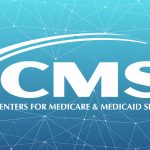In parts one and two of this series, I discussed the proposed regulations by the U.S. Office of National Coordinator for Health IT (ONC) and the Centers for Medicare and Medicaid Services (CMS) mandating a better exchange of health data, especially to patients – both a historical perspective and what it means to payers. In today’s post, providers are in the spotlight.
Hospitals and ambulatory practices are no strangers to government efforts to force collaboration and improve our ability to share data. Over the past 10 years, hospitals and providers have seen numerous rules rolled out to push them faster to a digitized world. The latest rule-making might not have come as a surprise to many in the industry. It was clear that CMS’ Promoting Interoperability program (previously known as Meaningful Use) has not gone far enough.
Clearly, many in our health care ecosystem know that we have problems, and some have risen to the challenge to try to solve them. However, government still needs to pull levers to force collaboration or the adoption of technology where it might not otherwise exist. The recent ONC and CMS proposed rules are just the latest in the ongoing effort to get us to an interoperable system.
There always seems to be a price to pay in the name of progress. It means making sacrifices, perhaps as individual organizations, for the better of many. As Eldridge Cleaver, an early activist in the Black Panther movement and author, wrote “You are either part of the solution or part of the problem.”
Want to publish your own articles on DistilINFO Publications?
Send us an email, we will get in touch with you.
What’s new and different in this rule for providers?
- Regulators have been concerned about the free flow of health data. To prevent “information blocking,” CMS proposes to publicly display the names of those providers who do not affirm, through Promoting Interoperability, that they are not blocking health information flow.
- Providers need to update their electronic digital contact information (i.e. Direct Address) in the national database of provider IDs – NPPES, and will be required to update any changes to information within 30 days of the change.
- As a Condition of Participation in Medicare, hospitals must implement electronic notifications which would notify another health care facility or to another community provider of a patient’s admission, discharge, and/or transfer (ADT) via an alert.
- The government will be updating some of the certification criteria for promoting interoperability; the most far-reaching impact would be penalties imposed for information blocking, which would include penalties for those entities who are considered information blockers. More information can be found on the ONC web site.
- Inherent in the ONC rules is that a hospital’s and provider’s vendors will need to adopt new standards including FHIR and the USCDI to support multiple CMS programs, including promoting interoperability.
In general, the proposed regulations are a much lighter lift for providers than for their payer counterparts. CMS’ proposed rule on electronic notifications, for example, is meant to “test the waters,” since there is no specific timeline associated with it. Meant with good intention, it lacked much of the specificity that would be required to implement it.
Vendors have been providing electronic notification capabilities to their customers for years (Healthix is a great example). Although this is a simple concept, the devil is in the details such as how to direct those messages to the right person, with an actionable payload. I also worry about alert fatigue. We hear constantly that adding more alerts, however useful they might be, can continue to create more noise than signal – something we can’t afford to do.
I continue to look forward to seeing the final rules emerge later this year. I’m certain they will contain changes to the timeline, and hopefully will provide more details on the proposals. Moreover, I hope that these rules advance the industry to further embrace an interoperable health system. That way, we can find a path forward to make data sharing easy and focus on the benefit of the data – to achieve better care, healthier patients, lower cost.
Date: August 21, 2019
Source: Intersystems







